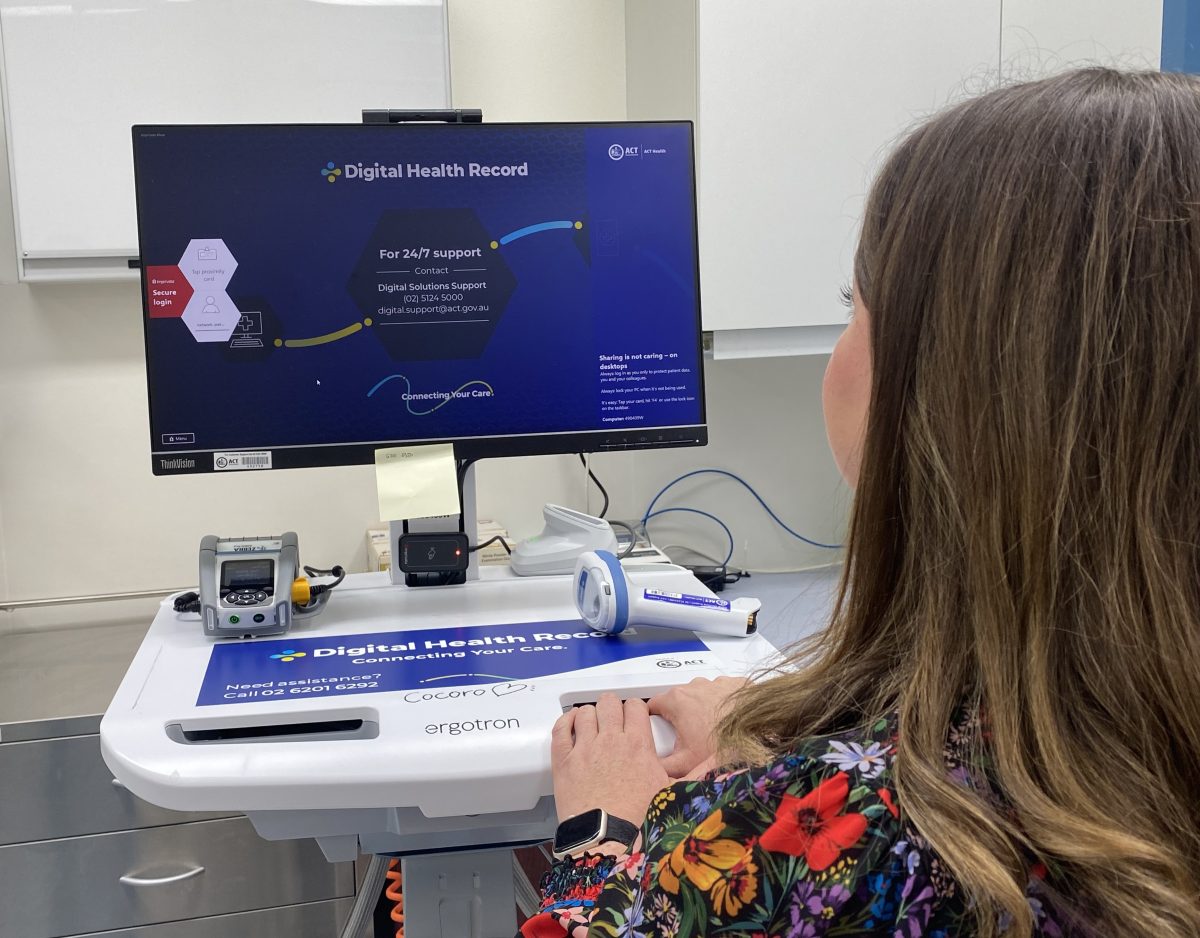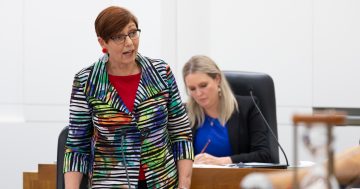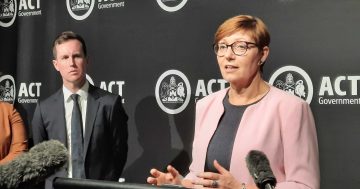
The Auditor-General’s office is now looking into the implementation and the benefits realisations of the Digital Health Record. Photo: Claire Fenwicke.
The ACT Auditor-General has predicted the Territory’s Digital Health Record will soon take the crown for demonstrating the “biggest failure of governance” he’s ever seen.
Michael Harris had previously used that language to describe the now-abandoned Human Resources Information Management System (HRIMS) in an audit report raising serious questions about the management, capability and accountability of government ICT projects.
During public hearings for the inquiry into his office’s scathing report into how well ACT Health had managed contract payments to private company NTT Australia to host the Digital Health Record (DHR) on Monday (13 October), Mr Harris said what he’d been seeing with the project followed “fairly closely on the heels” of HRIMS.
“I had described [the HRIMS process] as the biggest failure of governance I’d ever seen,” he said.
“My suspicion is that that record will be overtaken by [the DHR] project.”
(There had been concerns that the government had paid NTT for services not delivered. An internal review found this did not occur.)
When asked if he felt the lessons learned from the DHR audit report were being seen across all health projects, Mr Harris wasn’t optimistic.
“I wish I could answer that question positively,” he responded.
“Government actions taken to date have gone a long way towards addressing the issues in this report [and] as time goes on, other issues are being resolved.
“What’s in [this report] should not have occurred … this is a bit like a canary in a coal mine.”
Significant failures identified in the report included that invoices were paid more than three months after work had been completed (even though there was a contract clause that stipulated there was no obligation for the government to pay if invoices were that late) and that the finance team was forecasting budget overruns while the project management team was forecasting balanced books.
“Whenever there was an increase in budget, there was an automatic increase in the benefits that were supposedly to be derived in order to keep the budget balanced,” Mr Harris said.
He couldn’t say whether there had been scope creep on the project, but pointed out the NTT contract alone had gone from its original expected cost of $66 million in 2020 to $110 million. The contract will end on 22 December 2026.
“We do know enough … to be able to say that the budgeting arrangements were poor at best,” Mr Harris said.
During a later hearing, Health Minister Rachel Stephen-Smith explained the Digital Solutions Division had been managing its own invoicing, procurement and financial processes when DHR was being developed (under the former ACT Health directorate).
And the COVID-19 pandemic meant everyone’s attention was elsewhere.
“There wasn’t a strong focus on financial management in that period,” she said.
KPMG was procured to look into DSD’s financial challenges in early 2023 after it was realised the division’s issues were “deeper than just a pandemic impact”.
“I think a lot of the issues initially were unclear because there was a pandemic impact on the operation of the Digital Solutions Division, as well as trying to implement this major health record system,” Ms Stephen-Smith said.
Chief financial officer Muku Ganeshalingam told the inquiry that extra safeguards had since been put in place to ensure invoices couldn’t be processed for payment without being “triple checked”.
There are about 100 contracts in DSD (now under the Digital Canberra directorate), and most are related to DHR.
Another investigation is currently underway into DHR – focusing on its implementation and its benefits – but how many reports that generates remains to be seen.
But Mr Harris did have this to say: “I have no confidence you will find any good news in any of those reports.”
Original Article published by Claire Fenwicke on Region Canberra.











